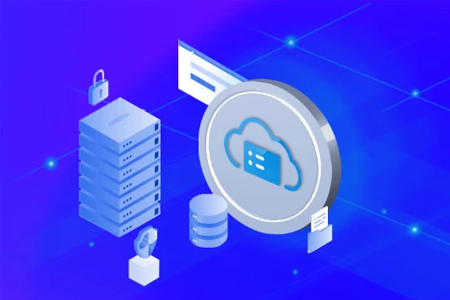When starting a new business, users need to ensure that the organization's infrastructure can carry the workload and perform business operations without delay and interruption. The infrastructure of the user's organization can be built on a combination (hybrid server) of physical machines, virtual machines or two. Therefore, many factors must be considered when options are selected. This article will compare physical and virtual machines.
What is a physical machine?
The comparison of physics and virtual machines should start with definition. The physical machine is also known as the "bare metal server", which is a single user computer server, which means specifying specific physical machines to a single user. The resources and components of a physical machine will not be shared between multiple users. Each physical machine includes memory, processor, network connection, hard disk drive, and operating systems for running programs and applications. The bare metal server is very large because it contains strong processing components.

What is a virtual machine?
Virtual machines are software computers used to simulate actual physical computers. The virtual machine runs in the "multi -user" environment, which means that multiple virtual machines are running on the same physical hardware. In this case, the computing resources of the physical machine are virtualized and shared between all virtual machines running on it. The structure of the virtual machine is slightly more complicated than the architecture of a physical machine. Therefore, the virtual machine management program is installed on the physical hardware. Then use management procedures to create and manage virtual machines with their own virtual computing resources. After that, users can load multiple customer operating systems and server applications on the virtual hardware. Therefore, virtual machine allows users to run multiple operating systems and applications on the basis of sharing physical hardware.
Difference between the two
Performance
This factor should be considered if the user's organizational processing needs to be processed continuously. Physical machines are more powerful and more efficient than virtual machines, because virtual machines are prone to performance problems due to the overload of the virtual server data in the physical machine. Therefore, physics and virtual machines with the same hardware and software resources and capabilities cannot be performed at the same level. If the operation of the user's organization requires a virtual machine to use the operation of computing resources, the physical machine is a better choice.
manage
As for management factors, virtual machines are easier to maintain than physical machines. If the server fails, it may take a few days to restore the physical machine to its original state. For virtual machines, with the help of modern virtual machine backup software, you only need to click a few times to start the recovery process. In addition, you must carefully check whether there is any defect in the physical machine. If necessary, you should install and set additional drivers before use. This is not the case for virtual machines because they are built on the physical hardware that can be used. Therefore, you can create and start a virtual machine within a few minutes. However, managing the virtual machine environment requires high -level professional knowledge and specific skills. Therefore, users are requested to ensure that the team members they choose have enough ability to control their virtual infrastructure. JTTI provides the LINUX KVM (virtual machine -based virtual machine) technology and VPS cloud hosts based on OpenStack.
Migable
One of the main differences between physical and virtual machines is portability. Users can easily move the virtual machine across the virtual environment, and even move from one physical machine to another, and the user only needs to perform the least input. This is because the virtual machine is isolated and has its own virtual hardware, which makes the virtual machine independent of the hardware. Move the user's physical machine environment to another position is a resource -intensive task. In this case, users need to copy all the data stored on the server to the mobile media, transmit all the hardware resources owned by the media and users to the new position, and then reinstall all the system component servers at the new position. In essence, users will have to re -build the server from scratch.
Scalability
To expand the physical machine environment, users need to buy additional hardware components, which may be very expensive, and they need to go through a long installation and configuration process. At the same time, the virtual machine environment provides an option for scalability on demand. A single virtual machine can host multiple virtual machines at the same time, just click the mouse to add or delete. The user's virtual environment can be expanded or reduced according to the growth of business needs. In this case, users do not need to buy additional hardware to ensure virtual machine deployment. This is because the virtual machine running on the host sharing the same computing resources can be allocated to all virtual machines. Therefore, users can design an easy -to -configure environment that can perform any complexity operations.
Capacity management
The physical machine did not play its hardware and software functions to a large level of virtual machines, and its average production capacity was 25%. Therefore, a large number of computing resources are not used, and it is not cost -effective. On the other hand, the server of the hosting multiple virtual machines is to handle the resource to the virtual machine to handle the unused resources by all virtual machines. In this way, high -quality capacity management can be achieved.






